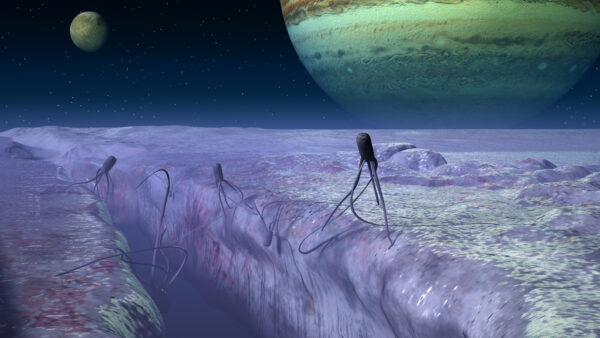Category Opinion
Let’s resume our discussion on the implications of the Fermi paradox on superintelligence. As I said in my previous article, any civilization that masters space travel and achieves the possibility of building megastructures, must have developed superintelligence as a prerequisite…. Continue Reading →
The Fermi paradox is the known contradiction between the lack of observational evidence for advanced alien civilizations and the estimates of the number of such civilizations in the Universe. The latest results of the Kepler space observatory suggest that about… Continue Reading →
One of the most difficult problems that science still needs to solve is the question of the origin of life. We have very strong evidence that life emerged on Earth around 3.7 billion years ago when our planet was less… Continue Reading →
The European Space Agency has made its final decision: the M3 class mission that will fly in the next decade is the exoplanet mission PLATO. The LOFT observatory, a competing high energy mission, arrived close second and will not be funded in… Continue Reading →
Nowadays astronomical data is recorded in two ways. Either remotely, for example with space telescopes, or in ground based observatories. In the latter case however, astronomers do not usually perform the observation by themselves, but they propose which object (and… Continue Reading →
Scientific discoveries can be divided, very broadly speaking, into four categories: major serendipitous discoveries, major discoveries that happen within a well known theoretical framework, major discoveries achieved by following unconventional ideas and minor incremental discoveries that most commonly are made… Continue Reading →
Whoever has undertaken an academic career knows one very basic truth: it’s very difficult if not impossible to have a permanent position in the same University where you earned your Ph.D. Changing the working environment, especially for those who aim… Continue Reading →
Astronomy is a very fast evolving science and astronomers have always been at the forefront when using the latest web technologies. We astronomers use the SAO/NASA Astrophysics Data System (ADS), a great bibliographic database that contains an enormous amount of… Continue Reading →


